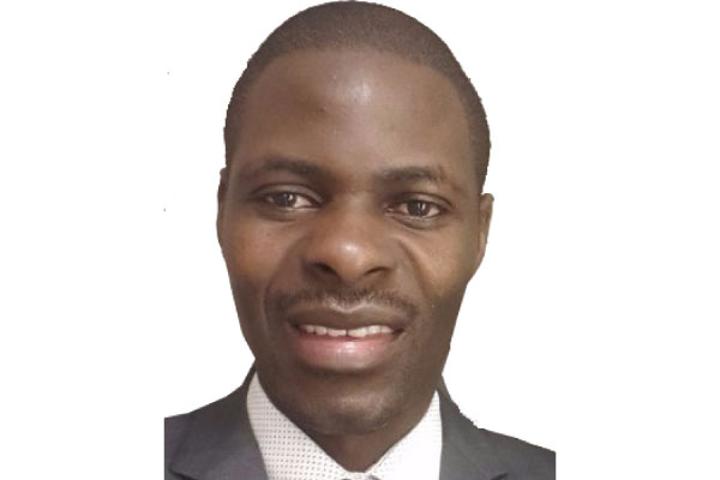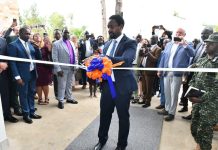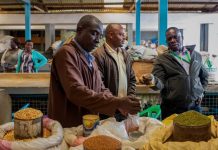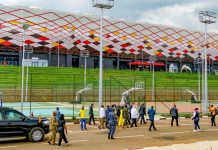Africa-Press – Uganda. For some time now, Ethiopia has been in tumult. The latest is a deadly armed conflict that has produced a humanitarian catastrophe.
The conflict in the Tigray region is arguably the least of possible worst outcomes anyone would have predicted only a few years ago.
The political elite from that region had been the core of the ruling class for more than 20 years under the leadership of Meles Zenawi. Even after his passing in 2012, the general perception was that power had remained firmly in the hands of the Tigrayan elite in Cabinet, intelligence and security operating behind, Hailemariam Desalegn, widely seen as a figurehead prime minister.
But starting 2015, matters took a rather dramatic turn with protests in the Oromiya region that includes the capital, Addis Ababa, initially directed against planned expansion of the city’s jurisdiction.
Since then, the country has faced mounting social disharmony and intensified political discontent.
The stresses and strains in Ethiopia’s body politic, however, go back in time and have had points of rupture in 2005 during the General Election, in 2002 at the end of the war with Eritrea, in 1992 during the anti-climax of a transition period and attempt at forging a coalitional governing arrangement following the deposing of military dictator, Mengistu Hailemariam and his Derg regime.
The recurring and constant problem during these different flashpoints was and remains the balancing of disparate ethno-regional political forces and contending interests. In a word, the national question.
Perhaps the most pronounced grievance is that of the Oromo, the largest ethnic group and victims of political marginalisation, social subjugation and cultural violence since the era of the imperial regime particularly under the Emperor Menelik II and the last monarch, Emperor Haile Selassie.
Fast forward, in 2018, there was great anticipation and high expectations when an Oromo prime minister, Dr Abiy Ahmed, took the helm. The mood of enthusiasm and euphoria was palpable in the capital Addis Ababa.
The dozens of citizens I interviewed in July 2018, only days after a possible attempted assassination on the premier in office barely two months, saw Abiy as godsend and precisely the leader that Ethiopia had been longing for.
But as I ran around from one interview appointment to another, speaking to old contacts in the media and academia, I could discern murmurs of disquiet and reservation at the speed of Premier Abiy’s reforms and the potential pushback from the old guard in the ruling regime now facing a purge.
As it turned out, the ascendance to power of an ethnic-majority prime minister did not bring calm and assurance even in his own backyard and, even worse, the power contests that followed Abiy’s rise have driven the country to war in the north – in Tigray.
At the heart of the crisis afflicting Ethiopia today is a problem that cuts across the African continent, and one that is ripe in Uganda – the national question.
The end of the ancient regime of imperial rule, followed by a military dictatorship, did not bring about meaningful transformation in the political culture and compromise necessary for managing a multi-ethnic and socially fractious society.
In 1991 when Meles Zenawi captured power, it became no more than a shift from one set of regional elites to another while the bulk of the country and different regional ethnicities remained marginalised and disarticulated from the power plays at the centre.
But it was just a matter of time for matters to unravel. It is impossible to marginalise, humiliate, side line and oppress a people forever.
This is the lesson Uganda’s current rulers must urgently take. Many in Buganda today strongly feel that the Museveni regime is some kind of occupying force. It has strangled critical voices and either silenced or demobilised the power of reason.
Remarkably, it took the rallying call of a populist popstar to get the public in Buganda to make an unequivocal statement: Enough is enough. The Greater northern Uganda has for long been there, so has the Rwenzori Sub-region and parts of eastern Uganda.
Yet, arguably, the real constituency that must compel the rulers to take a hard look and deep breath is not geographic or ethnic but demographic and generational. It is impossible to be a permanent occupying force, however militarily powerful.
And it is untenable for an old and exhausted group to consistently keep up with the pace of the 21st Century.It’s time out yet bowing out, depending on how it is handled, will likely trigger even bigger problems for the country.
Mr Khisa is assistant professor at North Carolina State University (USA). | [email protected]






